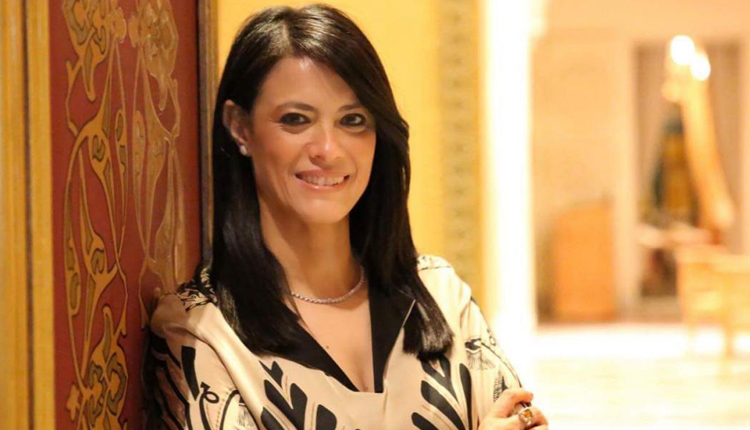Egypt hosts the first multi-stakeholder platform to close gender gap accelerator
Egypt’s Ministry of International Cooperation and the National Council for Women along with the World Economic Forum hosted on Saturday the first multi-stakeholder platform on “Closing the Gender Gap Accelerator.”
The platform, the first in Africa and Middle East region, brings together the international community and all stakeholders to ensure sustained commitment in achieving Goal 5 (Gender Equality) of the United Nations’ 17 Sustainable Developments Goals,
Thus, all efforts are upscaled and coordinated with the purpose of creating real impact in the lives of women through development cooperation.
The virtual platform, saw the participation of over 80 participants from the World Bank, the European Bank for Reconstruction and Development (EBRD), the French Development Agency (AFD), the USAID, and United Nations and its agencies. This is in addition to foreign courts including the Embassy of UK, Canada, China, South Korea, USA, Germany, and France, among others.
Egyptian Minister of International Cooperation Rania Al Mashat said the accelerator, a public private collaboration platform that helps governments and businesses take decisive actions on closing economic gender gaps, fosters more inclusion and engagement on the advancement of women.
“We want to achieve real impact in the economic participation of women in the economy, consistent with the objectives of the accelerator. Though there are so many projects happening on ground, the accelerator programme will act as an international benchmark to help ensure that all efforts are coordinated and upscaled,” Al Mashat said.
To ensure better results, the accelerator creates a structure for all stakeholders to engage in three stages: initiate projects, facilitate discussions to prioritise actions according to key objectives, and measure impact according to defined targets and metrics before final approval.
A key element is to support the private sector in playing a prominent role in formulating initiatives that can help increase women inclusion in the sector, the Minister added.
Initiate and Understand for Better Results
During the webinar, Dr. Maya Morsy, President of the National Council for Women, presented to the international community, an outline of the accelerator programme to help engage all development partners; helping understand shape innovative pathways for growth towards gender parity.
The presentation included the women policy reports and tracker issued on the policies and programmes taken by the Egyptian government amidst the covid-19 pandemic, responsive to the needs of women. The tracker serves as a tool to help policy makers moving forward; documenting the coordinated efforts of the government and reflecting on these policies.
Morsy highlighted that the accelerator is a full-fledged programme, which includes legislation and culture as cross cutting pillars, as well as social empowerment, protection, and political empowerment. “While economic empowerment is considered to be the main pillar, creating a safe environment in the world of work for women is vital to help achieve this,” she said.
Egypt is the first country to provide a women-specific response and tracker to Covid-19. Representatives from the World Economic Forum emphasised that Egypt provided a unique example that was provided within a “knowledge network”.
People at the core, Projects in action, and Purpose as the driver
During the meeting, Minister Al Mashat showcased a number of projects that recognise Egypt’s progress in achieving gender equality and catalyze for change, noting that it constitutes a cross cutting theme in 34 projects worth $3.3 billion.
The top targeted sectors through these projects are health, education and MSMEs, constituting 20 percent, 14 percent, and 15 percent respectively, of gender sensitive projects. They both represent direct investments in building human capital, where women are amongst the main beneficiaries.
Based on the three People & Projects & Purpose pillars, all projects are implemented through a people-centered development approach, that foster collaboration with all stakeholders to push forward the political, economic and social empowerment of women.
Coming together to progress towards ‘Gender Parity’
Cristina Albertin, the United Nations Resident Coordinator in Egypt, congratulated the Ministry of International Cooperation and the National Council for Women for the comprehensive briefing. She said the Gender Gap Accelerator which enhances existing national frameworks and leverages the impact of the Women’s Results Group under the United Nations Partnership Development Framework (UNPDF).
The UN is fully committed to support Egypt’s Ministry of International Cooperation and the National Council for Women in the rollout of the first Gender Gap Accelerator in the Middle East and North Africa, Albertin said.
“Egyptian Women represent 50 percent of the population. Removing legal and social barriers, through partnerships under the accelerator, will have direct impact on women’s active participation in the economy and hence growth and poverty reduction in Egypt,” said Robert Bou Jaoude, World Bank Operations Manager for Egypt, Yemen, and Djibouti.
While Beatrice Maser, MENA Regional Director at the International Finance Cooperation (IFC), stated that there are many programmes in partnership with the Ministry of International Cooperation that seek to improve the economic empowerment of women in collaboration with the private sector.
The IFC recently launched a new advisory programme to improve women’s employment opportunities in the Egyptian market through highlighting how private sector companies can tap into the country’s large female talent tool to spur economic growth.
“Creating economic opportunities for women in Egypt is a strategic priority for IFC, we look forward to future projects under the accelerator that support inclusiveness in the workforce.” Maser said.


